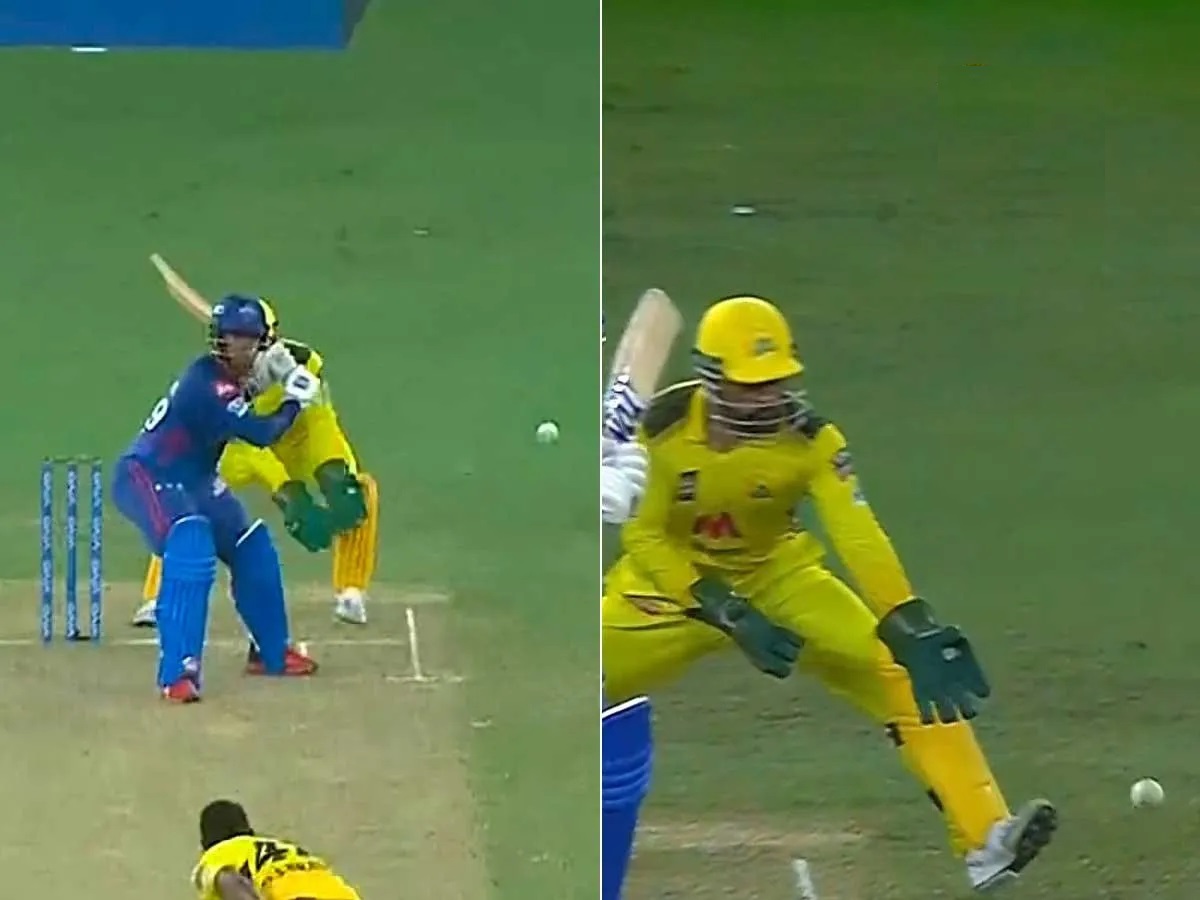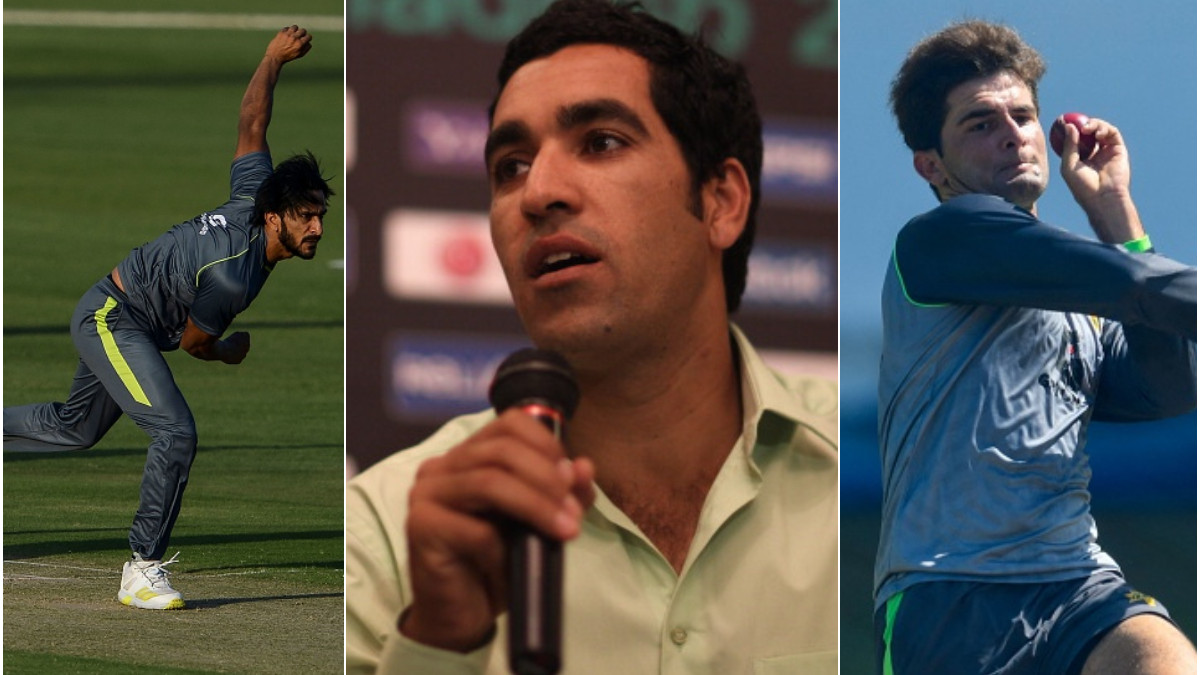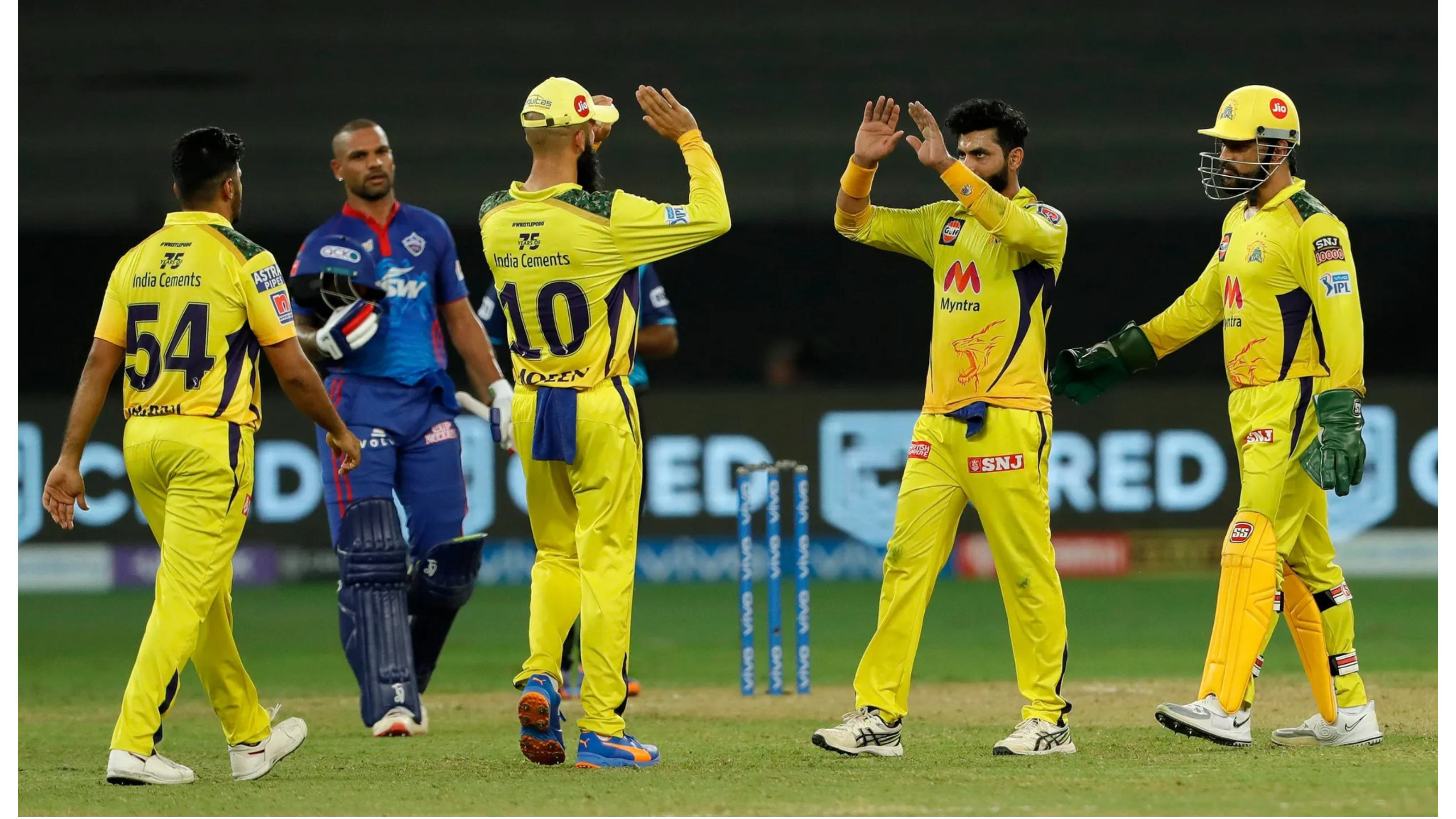
Legendary Indian cricketer and commentator Sunil Gavaskar was miffed over denying a clear no-ball in the final over of the 50th match between Chennai Super Kings (CSK) and Delhi Capitals (DC) in the ongoing Indian Premier League (IPL 2021) on Monday (October 5).
In the final over of the match, Dwayne Bravo was tasked with the responsibility of defending 6 runs for Chennai Super Kings (CSK), but the all-rounder started the crucial over by giving away 2 runs against Delhi Capitals (DC) before he delivered a no-ball that was later given a wide in Dubai.
In the second ball of the over, when DC needed 4 off 5, Bravo couldn’t execute a slower delivery properly, as it went outside the off stump without even landing on the pitch.
Read Also: IPL 2021: WATCH- Rishabh Pant's lovely, blissful camaraderie with MS Dhoni at the toss
Hetmyer and Kagiso Rabada quickly ran to get 2 runs from the ball, as the on-field umpire Anil Chaudhary signaled a no-ball since the ball landed outside the pitch, but later the decision was changed to a wide after consulting with the third-umpire, and DC were robbed of a free hit on the next delivery.
Well, Hetmyer chipped in with an unbeaten 28 off 18 balls to take DC over the line with 2 balls to spare against CSK in Dubai on Monday. The three-wicket win over CSK helped DC climb to the top of the table with 20 points from 13 games, with Chennai in second place with 18 points.
According to the rules, the umpire is bound to signal a no-ball if the ball pitches wholly or partially off the pitch (Law 61) before it reaches the line of the striker's wicket. Well, the third umpire's decision to make the on-field umpire change his call, left many baffled, including Gavaskar.
The former Indian skipper said the decision could have played a major role in deciding the fate of the IPL 14 encounter between DC and CSK, saying he couldn't understand why the TV umpire decided to call it wide instead of a no-ball.
Gavaskar said on Star Sports after the match: “That was clearly a no-ball. We've had a couple of decisions from TV umpires, which in these circumstances can make the difference between winning and losing, and that shouldn't happen. These kinds of decisions should not change the game. It's a good thing Delhi won because that could have changed the game.”



